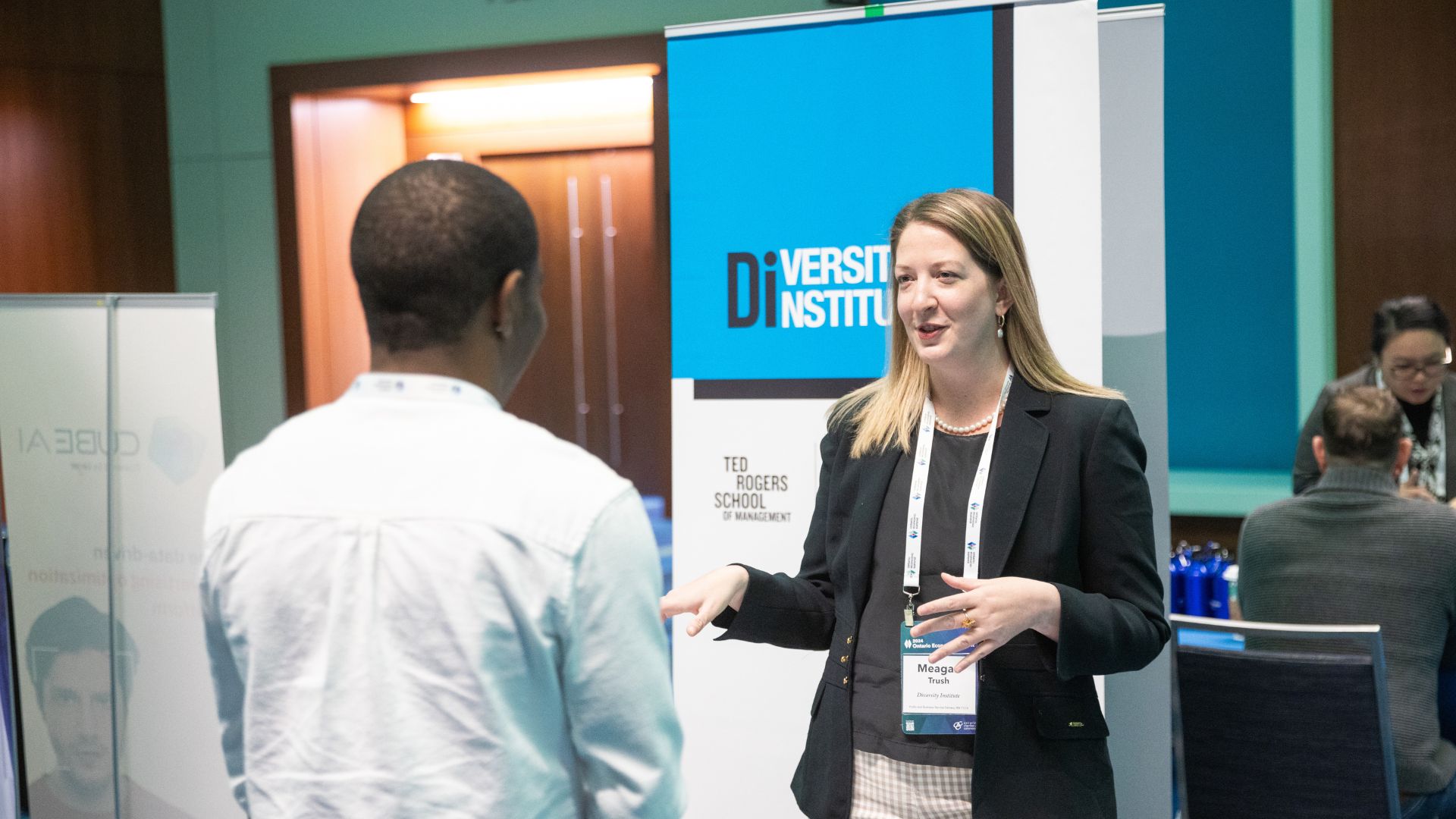Talking Artificial Intelligence at the Ontario Economic Summit

The Ontario Chamber of Commerce (OCC) held its annual Economic Summit (OES) in Toronto on November 20 and 21, 2024. The event attracted more than 300 policy makers and business leaders from across the country to address issues affecting Ontario’s competitiveness, innovation, sustainability and inclusion.
Wendy Cukier, professor of entrepreneurship and innovation at Toronto Metropolitan’s University’s Ted Rogers School of Management and academic research director of the Future Skills Centre, set the stage for the event’s AI-Powered Growth: Opportunity for Emerging Technology panel.
She focused on Canada’s lack of adoption of disruptive technologies, and detailed key takeaways, which she outlined as follows:
If you don’t have the adoption of technology, you don’t have innovation.
Canada is a leader in the development of AI technology. Geoffrey Hinton just won the Nobel Prize in Physics for it. Canadian research and development investment in AI is huge. However, Canada is a laggard in the use of AI. It's a real paradox, because if you don't have the adoption of technology, you don't have innovation. Creating the technologies does not produce innovation. Using them does. The Diversity Institute’s recent research with the Future Skills Centre and Environics Institute, a survey of 40,000 Canadians, showed that workers are ahead of their employers in the adoption of AI. Employees are using AI, often without the guardrails or the knowledge that is needed to manage the risk. And we know that does create risk.
Artificial intelligence skills development is needed.
We hear a lot about the promise, as well as the peril, of AI. Urgent action is needed to address the issues around adoption, including skills development. We know AI is transforming the world of work in a variety of ways, but we need to consider what is required in terms of AI skills. While we absolutely need deep technology skills, and there is an insatiable desire for science, technology, engineering and math (STEM) grads, that's not the only opportunity available to adopt disruptive technologies. There is also a huge opportunity for what we would call ‘hybrids.’ These are people who not only understand technology but also understand organizational objectives. This creates space for a broader range of disciplines. For successful AI adoption, we need people who understand policy, regulation, law, ethics, organizational development, consumer behaviour and more, which opens up space for women and diverse people who are under-represented in STEM. Everyone needs basic AI literacy.
Artificial intelligence is the English major’s revenge and has the potential to bridge the digital inclusion divide.
Artificial intelligence is really challenging some of our assumptions about technology skills and has the potential to bridge the digital divide. In the recent Diversity Institute AI report with the Environics Institute findings showed very little difference between men and women in the use of AI tools. Generative AI is the ‘English major’s revenge.’ I use this term because prompt engineering requires a really strong command of language and reasoning, not coding skills. This is beneficial for women and other groups under-represented in STEM.
Support small and medium-sized enterprises (SMEs) in AI adoption.

Meagan Trush, director of partnerships at the Diversity Institute, discussed research, projects and more, at the 2024 Ontario Economic Summit.
The structure of the Canadian economy rests on the success of SMEs. They make up 90% of private sector jobs in Canada, compared to only about 50% in the United States. We really have to be laser-focused on ensuring that SMEs have the knowledge, capacity and skills to adopt AI responsibly, and that's why SME training projects like the FSC-funded Skills Bridge (external link) program with the Ontario Chamber of Commerce, which is powered by Magnet and was developed with the Diversity Institute, are so important. More than 500 companies have participated in the program, which continues to offer online training opportunities on a rolling basis.
Joining Cukier’s panel, chaired by Stephanie Holco, director of project development NGen Canada, were John Weigelt, national technology officer for Microsoft; Joel Blit, associate professor at the University of Waterloo; and Dana O'Born, vice-president, strategy and advocacy, at the Council of Canadian Innovators. They reinforced the importance of AI adoption to Ontario’s prosperity and emphasized the need for a focus on SMEs while acknowledging the imperative to ensure risks are managed.